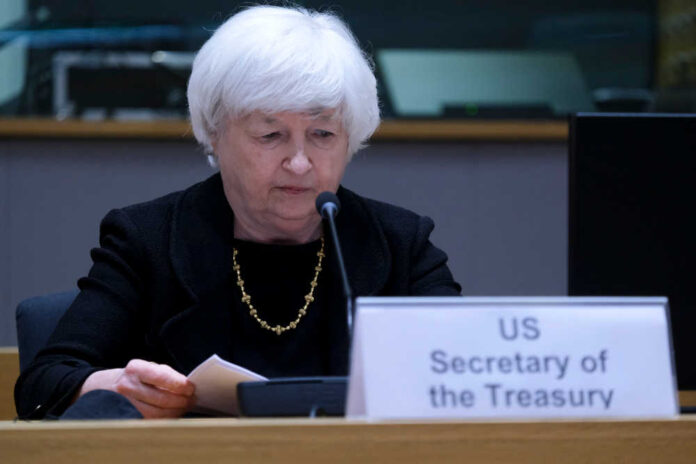
Treasury Secretary Janet Yellen recently told Congress that the U.S. would reach its debt limit by Thursday and would have to resort to “extraordinary measures” to avoid default.
Yellen Warns US Will Hit Debt Limit Next Thursday, Will Take Extraordinary Measures To Avoid Default https://t.co/Av0q3WTOsE
— zerohedge (@zerohedge) January 13, 2023
In her letter to House and Senate leaders, Yellen said the measures would buy time until Congress can pass legislation raising the nation’s $31.4 trillion borrowing capacity or suspending it again for a given period.
Those measures include diverting some funds, such as contributions to federal employees’ retirement plans, to make some provisions to accommodate other payments that are deemed critical, including payments for Social Security and debt instruments.
Yellen maintained that Failure to meet the government’s obligations would harm the economy and global financial stability as well as have negative impacts on the livelihoods of all Americans.
“Indeed, in the past, even threats that the U.S. government might fail to meet its obligations have caused real harm, including the only credit rating downgrade in the history of our nation in 2011,” Yellen wrote.
Yellen added that although the Treasury can’t be precise on how long the extraordinary measures will allow the government to meet its obligations, it is unlikely that the U.S. will exhaust the cash and extraordinary before June.
The Treasury first used these extraordinary measures in 1985 and has used them at least 16 times more, according to the Committee for a Responsible Federal Budget. However, these extraordinary measures are not eternal and would be exhausted, exposing the U.S. to the risk of default.
Senate Republicans are also adamant that increases to the debt limit should be connected to “structural spending reform.”
“It’s long past time for Washington to end the reckless spending of taxpayer dollars and start living within its means. I look forward to working with House Republicans so we can stop caving to the Democrats, finally end Biden’s raging inflation crisis and bring fiscal sanity back to Washington,” Senator Rick Scott (R-FL) said in a statement on Friday.
House Speaker Kevin McCarthy (R-CA) has also hinted at reducing the national debt, which exceeded $31 trillion last year and has increased during both Republican and Democratic administrations, as a primary focus of his party’s agenda.












